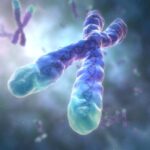With millions of American adults diagnosed with alcoholic cirrhosis, researchers at Indiana University probed how identifying certain genetic factors may play a part in preventing alcoholic cirrhosis. They published their new study in the journal Hepatology.
As part of the study, the Indiana-based team analyzed the data of more than 1,000 subjects of European ancestry with alcohol-related cirrhosis (ALC) and more than 600 more heavy drinkers without any liver disease. The participants were based in Australia, Europe, the United States, and the United Kingdom.
“Genome‐wide association study (GWAS) was performed, adjusting for principal components and clinical covariates (alcohol use, age, sex, BMI, diabetes),” the co-authors of the study explained in the publication.
The GWAS findings were validated using Rory Collins’ UK Biobank.
According to researchers, their key finding was a gene referred to as FAF2. It could be involved in the lipid droplet organization pathway which can explain why some people develop liver disease and others do not.
“In conclusion, our GWAS identified a new locus at FAF2 associated with reduced risk of ALC among heavy drinkers. Like the PNPLA3 and HSD17B13 gene products, the FAF2 product has been localized to fat droplets in hepatocytes. Our genetic findings implicate lipid droplets in the biological pathway(s) underlying ALC,” the co-authors concluded in their findings.
In spite of the findings, researchers are aiming at studying this gene more thoroughly to establish its likelihood in the onset of alcoholic cirrhosis.
“We don’t know exactly what the biological underpinning of that is, but now we have a pretty well-defined target where we can look at these variants and see how they relate to alcoholic cirrhosis,” said Tae-Hwi Schwantes-An, the study’s lead author.
“We know for a fact those genes are linked together in a biological process, so the logical next step is to study how the changes in these genes alter the function of that process, whether it’s less efficient in one group of people, or maybe it’s inhibited in some way.”


